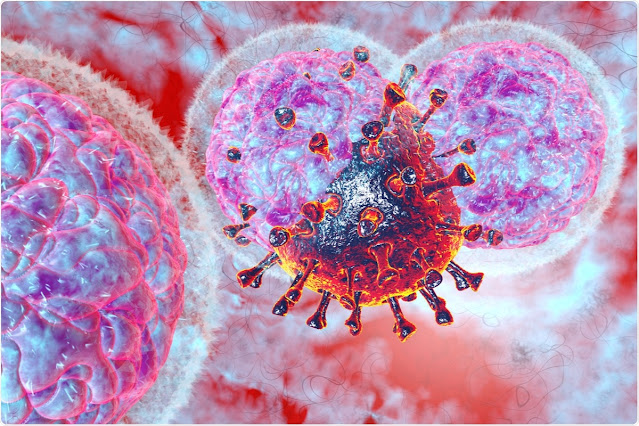Revolutionizing Immunotherapy: The Emerging Role of Natural Killer Cells
 |
| Natural Killer Cells |
In the field of immunotherapy, a groundbreaking development is taking place with the emerging recognition of the vital role played by Natural Killer Cells. These specialized cells of the innate immune system are garnering attention for their unique ability to identify and eliminate cancer cells, as well as their potential in treating various diseases. This article explores how NK cells are revolutionizing the landscape of immunotherapy and reshaping the future of cancer treatment. NK cells are part of the body's natural defense mechanism against infections and malignancies. Unlike other immune cells, NK cells do not require prior exposure to antigens to initiate their killing response. They possess the remarkable ability to recognize and destroy abnormal cells, including cancer cells, through a process known as natural cytotoxicity. This property makes them an attractive candidate for immunotherapy, as they can target cancer cells with precision and without causing harm to normal cells.
One of the significant advantages of Natural Killer Cells in immunotherapy is their ability to recognize a wide range of cancer cells. Unlike T cells, which require the presentation of specific antigens on the cancer cell surface, NK cells can identify and eliminate cancer cells without prior antigen recognition. This flexibility allows NK cells to target a broader spectrum of cancer types, including those that evade detection by the adaptive immune system. The emerging role of NK cells in immunotherapy has led to the development of various strategies to harness their potential.
According to Coherent Market Insights the Natural Killer Cells Market Industry Insights, Trends, Outlook, and Opportunity Analysis, 2022-2028.
One approach involves isolating and expanding NK cells from a patient's own blood or from a healthy donor, followed by infusion into the patient. This technique, known as adoptive NK cell therapy, has shown promising results in clinical trials, particularly in the treatment of hematological malignancies such as leukemia and lymphoma. By boosting the number and function of NK cells, this therapy enhances the body's immune response against cancer. Another exciting avenue of research is the combination of NK cell therapy with other immunotherapeutic agents, such as checkpoint inhibitors and monoclonal antibodies. By leveraging the synergistic effects of these treatments, scientists aim to enhance the anti-cancer activity of NK cells and overcome tumor resistance. Preliminary studies have shown encouraging results, paving the way for further investigation into combination therapies involving NK cells.
Furthermore, advancements in genetic engineering have enabled the modification of Natural Killer Cells to enhance their anti-cancer properties. Genetic engineering techniques such as chimeric antigen receptor (CAR) and antibody-dependent cellular cytotoxicity (ADCC) have been applied to engineer NK cells to express receptors that specifically recognize cancer cells. This approach allows NK cells to be redirected towards cancer cells with precision, further enhancing their therapeutic potential.



Comments
Post a Comment